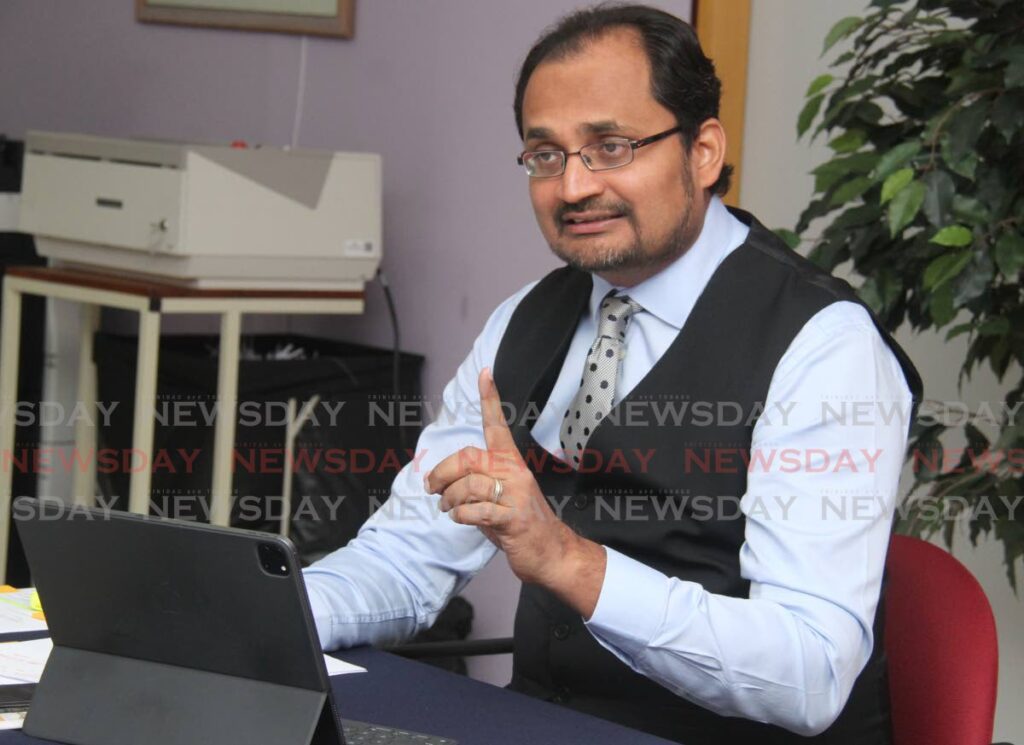Migrant possibilities and impossibilities

DINESH RAMBALLY
THE RECENT deportation of 98 Venezuelan migrants after a legal battle with the Government left mixed feelings in TT. I highly doubt anyone was convinced that the Government was finally taking firm action on an issue that has been screaming for attention for several years now. I believe many were rightfully concerned with the inhumane treatment of the migrants – the lengthy detention in Chaguaramas, the conditions and legality of the detention, and finally the deportation which separated young children from their mothers.
All this has left in the national mind is the conviction that there must be a way to balance being humane and keeping control of our borders. In the wake of the deportation, Amnesty International made some comments about the Government’s draconian treatment, and the opaque nature of the immigration process in general.
This, I believe, is where our troubles begin and end. On the one hand, the Government has left the borders open for several years, and a steady flow of pirogues and other vessels ferry the migrants across the seven miles of ocean that separate our countries. The registration process two or three years ago issued documents to some migrants, but left no usable data as to how many migrants are really here, how many come, and the state of institutions they need to function, like school, health and security.
Added to this, we hear from various commentators that these migrants can be a human resource boon for the country, and remind us of our international treaty obligations to receive and support migrants and asylum seekers.
This is disingenuous. We are best placed to determine our human resource needs. We have several tertiary institutions which turn out skilled graduates, in addition to a large US and UK diaspora, which moves between countries. Our human resource needs are adequately supplied.
Further, our international treaty obligations did not foresee a country of 30 million sending tens, perhaps hundreds of thousands of migrants to our shores. Size is an issue: 150,000 migrants is ten per cent of our population. We simply cannot accommodate them in a country of already stressed and cracking medical, educational, transportation, housing and national security systems.
Furthermore, rather than spouting pre-packaged moralising about the “humane” treatment of migrants, international agencies must be aware of the reality on the ground: sex and human trafficking, and exploitation of women and children. Their efforts should be pointed to making potential migrants aware of what awaits them here.
To repeat myself: the problems begin and end with the Government, and the lack of data and coherent policy. They are not processing claims, and are not communicating as to the state and status of the migrants, and not even providing basic statistics.
Our NGOs and research institutions are also silent on providing us with any usable information to make rational decisions. What we do have are news reports, and emotive situations like the deportations which bring activists and advocates out to the public to accuse the rest of the nation of being inhumane.
I cannot support an immigration regime which separates mothers from children and promotes the dehumanisation of migrants. I think I speak for all sane Trinidadians/Tobagonians here. However, neither can I support an ad hoc, gold-rush mentality which has boats pulling up on our shores on a nightly basis depositing people without documents who expect to be accommodated without question.
One situation in our recent history comes to mind discussing this. In the late 1980s, several Trinidadians took to Canada to claim “refugee status.” The Canadian government processed them, heard their claims, and then repatriated the vast majority of them. Nothing even vaguely as rational or systematic obtains here.
And finally, there is another issue we are not contemplating: our Venezuelan neighbours are, for the most part, being poorly treated in Trinidad. Assuming a large portion (perhaps 100,000 plus) remain, they are poised to constitute a significant portion of the country’s population, and this origin becomes their collective trauma, the fruits of which we will reap years down the road.
In the 1970s and 1980s, tens of thousands of migrants came from the small islands and settled in areas along the east-west corridor, mainly. Many of these areas are now the most underdeveloped in the country.
In the end, this is an issue the Government must grab by the horns. Until then, we have the irreconcilable poles of a lethargic government and the diminishing capacity to absorb migrants. In the middle are the citizens, watching helplessly.
Dinesh Rambally is the MP for Chaguanas West


Comments
"Migrant possibilities and impossibilities"